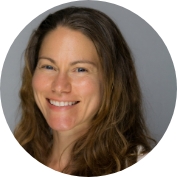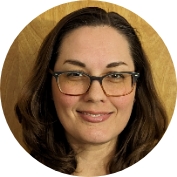Online Certificate
Science and Environmental Communication
Develop skills to foster inclusive, just, and productive dialogue to navigate complex environmental and science-related issues and spur action.
The certificate of advanced study in Science and Environmental Communication prepares current and future environmental professionals, decision-makers, and engaged citizens to communicate effectively, as well as to analyze and assess factors influencing public perceptions of environment, science, and risk. Effective communication and dialogue in environmental decision-making is emphasized, as participants learn to develop, engage, and evaluate audience-centered communication strategies that respond to points of convergence and conflict.
Get to know the program
Students in our fully online program will learn to:
- Evaluate factors influencing public perception of science and environment
- Assess the target audience(s) for specific public relations, communications, advocacy, and engagement efforts
- Design research-based public relations programs, including crafting messages and selecting communication channels appropriate to the target audience(s)
- Evaluate communication and advocacy campaigns
- Foster effective communication and dialogue in environmental decision-making
- Analyze how stakeholders engage in conflict situations and select appropriate methods for addressing those conflicts

Certificate requirements
The graduate certificate in Science and Environmental Communication requires the completion of three courses:
Explores the public relations profession from a management perspective. Includes foundations of ethics, law, and theory. Focuses on public relations functions relative to culture and society. Examines professional communication processes and practices. Provides practice in public relations skills of preparing audience-centered materials and managing media relations.
Scientific and technological advancements entail both benefits and risks. How people perceive those benefits and risks will influence their acceptance or rejection of specific advances. In this class you will learn about the factors that influence people’s perception of risk, science and environmental change, and learn how communication shapes the possibilities for dialog and decision-making.
Addresses complex dynamics, strategies, and tactics of 1) organized campaigns by grassroots to international organizations to advocate for particular environmental policy and 2) processes that seek to resolve, manage, or prevent environmental conflicts when appropriate. Readings, simulations, projects, and case study analysis.
All courses are offered online and designed to accommodate working professionals’ schedules. Course activities include readings, instructor-developed video presentations and podcasts, guided exercises, online discussions, and completion of class exercises toward a final project. Students regularly engage with the professor in online discussions, synchronous learning sessions, and phone or online office hours.
We understand flexibility is important.
If you’re not ready to commit to the full certificate program, you can enroll in just
one course for now and take the others
later by registering as a visiting student.
Faculty

Dr. Benette Whitmore
Professor, Environmental Studies
[email protected]
Dr. Whitmore has a graduate degree in Public Relations Management from the S.I. Newhouse School of Public Relations at Syracuse University. She worked as a public relations professional in higher education, healthcare, and the private sector before transitioning to become an ESF faculty member. Her experience spans all aspects of professional communication, including video production, publication creation, technical writing, and graphic design. An award-winning educator and published fiction writer, she has served as Writing Program Director and Professor in Environmental Studies and General Education over the past 15 years.

Dr. Patrice Kohl
Associate Professor, Environmental Studies
[email protected]
Dr. Kohl’s research focuses on communication and public perceptions of environmental, scientific and risk issues. She works primarily on survey and experimental research examining public perceptions and the influence of messaging in relation to topics such as climate change, space junk and genetic engineering as a conservation tool. Her publications have appeared in journals such as Environmental Communication, Science Communication, Public Understanding of Science, Risk Research, Conservation Biology, and the Journal of Fish and Wildlife Management. Dr. Kohl also has a professional background in science and environmental communication. Before becoming a communication scholar, she reported for two Alaska newspapers, writing about fisheries and other environmental topics. She has also worked on a various science and environmental outreach projects such as an Alaska Department of Fish and Game effort to promote public understanding of salmon monitoring programs, a World Health Organization book documenting responses to the 2004 Indian Ocean Tsunami, and a Wisconsin Department of Natural Resources citizen science wetland publication series.

Dr. Andrea Feldpausch-Parker
Associate Professor, Environmental Studies
[email protected]
Dr. Andrea Feldpausch-Parker is an Associate Professor of Science and Environmental Communication in the Department of Environmental Studies at the State University of New York College of Environmental Science and Forestry (SUNY-ESF). Her research is interdisciplinary in nature, focusing on science and environmental communication with interests in conservation of natural resources through communication and cooperative learning among stakeholders including but not limited to scientists, managers, policy-makers, industry and concerned publics. Her current focus is on energy democracy and natural resources conflict management, with additional interests in climate change mitigation and adaptation strategies, natural resources management, energy policy, public participation in environmental decision-making and social movements. Her publications have appeared in journals including but not limited to Conservation Biology, Local Environment, Environmental Communication, Energies, Conservation and Society, Urban Ecosystems and Frontiers in Communication.
Master of Professional Studies
Take your certificate to the next level:
Complete all three of ESF’s online graduate certificates — plus a capstone project — to earn a Master of Professional Studies (MPS) in Environmental Leadership, Justice, and Communication.
Contact us
Share some basic information below and we’ll be in touch as soon as possible.
